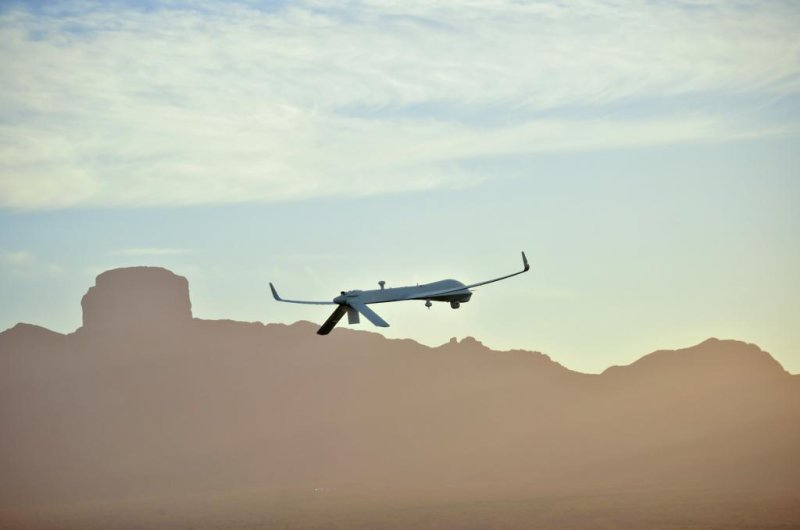The Predator XP remotely piloted aircraft, pictured in flight, has an endurance of 35 hours in the air and fly as high as 25,000 feet off the ground. Photo courtesy of General Atomics
Oct. 19 (UPI) -- General Atomics Aeronautical Systems Inc has signed agreements for collaboration with South Korean entities for remotely piloted vehicles.
The agreements were signed with Huneed Technologies Co. Ltd and the Korean Advanced Institute of Science and Technology this week at the aerospace and defense exhibition in Seoul, South Korea.
Under a Memorandum of Understanding with Huneed Technologies, the two companies will look to identify common areas of technology, manufacturing, and strategic interests.
The execution of this MOU positions Huneed to become a key in-country strategic supplier for GA-ASI in Korea.
The MOU with the Korean Advanced Institute of Science and Technology gives GA-ASI opens the door for better understanding of the civil airspace environment of South Korea its regulatory structure.
GA-ASI is the leading manufacturer of Remotely Piloted Aircraft systems, including the Predator series of aircraft.
"Huneed has a long track record of building successful business relationships with its industrial collaborators," Joseph Song, vice president of international strategic development for GA-ASI, said in a press release. "We are pleased to begin our strategic relationship with Huneed in developing business opportunities in the Republic of Korea."
Huneed, founded in 1968, is a developer and manufacturer of airborne systems, defense communication systems, and commercial IT systems.
GA-ASI said KAIST is host to CR2CENT, Korea's Civil RPAS Research Center and provides advice and analysis to develop the legal and technological foundation for integration of RPAs into Korean civil airspace.
"We recognize the importance of the contributions that institutions like CR2CENT make to aviation," Song said. "We expect that aligning with CR2CENT and KAIST will help advance the ability of RPAS to fly in Korean civil airspace."















